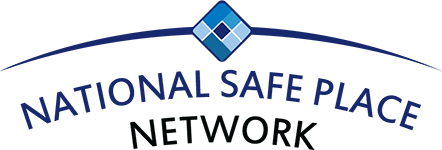Words of Wisdom and Hope from a Survivor and Advocate
by Michelle Hurley, NSPN Program Advocate, in conversation with Lynn Caffrey, Executive Director of Safe Harbor Youth, Inc.
January is recognized as National Slavery and Human Trafficking Prevention Month which serves as a time to spread awareness of this horrific crime, celebrate survivors of trafficking, and share appreciation for those creating change. As January ends and February begins, there is still work to be done for youth who are survivors of human trafficking or at risk of exploitation.
Earlier this month, I sat down for a conversation with Lynn Caffery, Executive Director of Safe Harbor Youth, Inc., to hear what insights she could share from her journey as a survivor of human trafficking who now serves at-risk youth. In addition to her work in Huntsville, Alabama, with Safe Harbor Youth, Inc., Lynn travels to share her story and spread awareness, provide training to law enforcement, and advocate for legislation to help end human trafficking. Below are three pieces of invaluable wisdom she shared with me.
1. Shifting language from “victim” to “survivor” focuses on strength and resilience.Before leaving their abuser, many people do not realize they were being victimized. Rather, many see the trafficker as a “rescuer.” This dynamic may be introduced by childhood trauma, homelessness, and poverty. A trafficker preys upon these vulnerabilities through grooming by entrapping their victim, and brainwashing them through verbal, physical, and sexual abuse. In a sense, survivors experience internal “victim blaming,” instilled by their abusers in order to make them submissive.
Even after escaping, survivors carry feelings of blame and brokenness within themselves, which they may bury and avoid as a means to keep themselves safe. Shifting the language from “victim” to “survivor” symbolically represents the difficult steps survivors take to break these mental chains. They must learn new coping skills, develop healthy relationships, identify their dreams and goals, build self-esteem, and unlearn the stigma they carry. Changing this language is a simple step in helping survivors feel valid, empowered, and supported. As Lynn succinctly stated, “Don’t tell them what they are. Build them into who they are.”
2. Creating change starts by helping survivors see their own worth and breaking the web of toxic shame.
To create a culture shift to end victim blaming, the first step is breaking the web of toxic shame survivors experience. Although direct service providers can walk with survivors through this difficult journey, it is ultimately the survivors themselves who must put in the work to regain control of their own minds. To support them, providers can show survivors how to reject self-blame and validate their self-worth. One approach is to illuminate how some “negative” skills can actually be reframed as positive. For example, Lynn shared her coping skill of blocking traumatic events from her mind once caused her to avoid processing her experiences, but now she uses this skill to focus on the present moment while public speaking or working with other survivors.
Positive changes are beginning to happen in today’s culture as society becomes more informed about human trafficking and the impact of trauma. Lynn shares she has worked with law enforcement, homeland security, and the FBI to provide training to professionals who will often encounter survivors of human trafficking. She hopes these trainings offer attendees a different perspective and an alternative approach, one of nonjudgment. Rather than human trafficking survivors being arrested, they can be connected with resources for help. Still, there is further work to be done – legislation to provide additional support for survivors, as well as increased penalties for traffickers and solicitors.
3. To support survivors, be a consistent positive figure in their lives and never give up on them.
Only after meeting with a social worker in prison, did Lynn become aware she had been victimized by a trafficker. This experience changed her life when her social worker said, “I see something in you that you don’t see for yourself.” This acknowledgment provided an open door for Lynn to talk and feel someone was listening, as well as to begin building dreams she had for herself. Similarly, Lynn now provides unconditional and unfailing support for the young people she meets at Safe Harbor Youth, Inc.
As Lynn shared with me, it is important to remember trauma is stored within the mind and can control a person from within. Until survivors fully process their experiences, they may not be able to understand the impact trauma has on their brains. Just as in the grieving process, this looks different for each individual and recovery varies in length of time. What may appear to be “acting out” or “running” is often survivors’ main method to seek protection in the only way they know how, especially prior to learning new coping skills.
Toward the end of our fantastic discussion, Lynn reiterated the importance of patience, compassion, empathy, consistency, and never giving up. As she thoughtfully said, “Everybody has a dream.” Whether you are a direct provider, advocate, executive director, volunteer, or just someone who cares, you can be a piece of survivors’ paths to breaking out of the web of toxic shame and achieving their dreams. Together we can!



